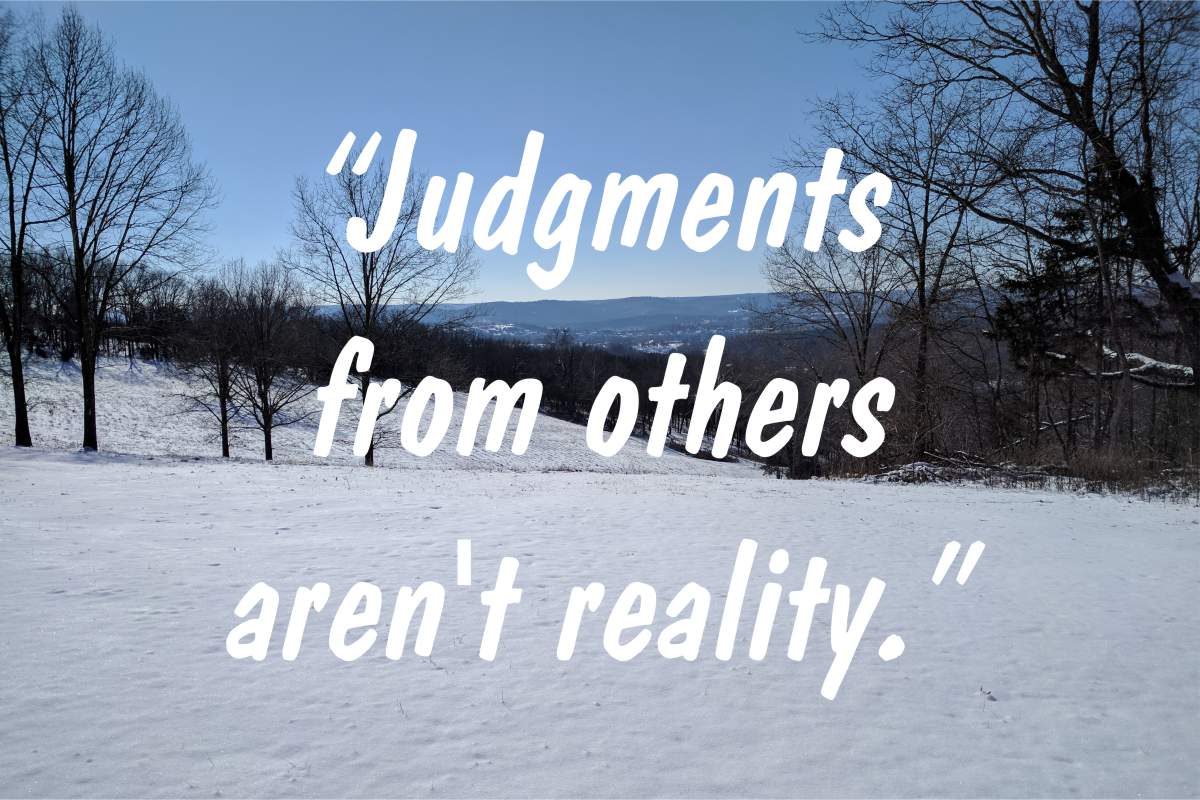










Popular Articles
Crazy-Makers: Dealing with Passive-Aggressive People
Why Are People Mean? Don't Take It Personally!
Struggling to Forgive: An Inability to Grieve
The Secret of Happiness: Let It Find You (But Make the Effort)
20 Steps to Better Self-Esteem
7 Rules and 8 Methods for Responding to Passive-aggressive People
What to Do When Your Jealousy Threatens to Destroy Your Marriage
Guide to How to Set Achieveable Goals
Catastrophe? Or Inconvenience?
Popular Audios
Audio Version of Article: Crazy-Makers: Passive-Aggressive People
Audio Version of Article: Why Are People Mean? Don't Take It Personally!
15 Coping Statements for Panic and Anxiety
by Monica A. Frank, PhD
Coping statements can be part of your strategy to manage anxiety. What are coping statements? When you struggle with anxiety you are usually engaging in fearful and/or inaccurate self-talk which tends to increase the anxiety. The purpose of coping statements is to counter this anxious self-talk.
This series provides an explanation of some common coping statements. The best way to use them is to identify the ones that are most calming to you and repeat them over and over when you are anxious sort of like a mantra. Combining a single statement with taking slow breaths can be particularly helpful.
Coping statement #6: “Judgments from others aren't reality.”
Some people with anxiety disorders have increased anxiety because they are fearful of having anxiety or panic in public. This is an aspect of social anxiety combined with the primary anxiety disorder such as panic disorder or generalized anxiety disorder. They are afraid of what others might think. This additional fear adds to the anxiety they already experience, thus making it more difficult to manage.
If you have this type of anxiety, it is important to keep in mind that if other people notice your anxiety most likely they will equate it with normal anxiety that most people experience at times. They are likely to attribute your anxiety to the circumstances and not to a negative critique of you. As a result, they are more likely to identify with you and reassure you: “Oh, yeah, I get anxious when...”
Unfortunately, the other side of this tendency for others to believe that an anxiety disorder is the same thing as normal anxiety is that some may also tend to think that those who have an anxiety disorder are just weak and can't handle normal anxiety.
So, it is necessary for you to not accept judgments from others and to not incorporate stigmas into your own beliefs about yourself. Just because someone else may be ignorant of what an anxiety disorder is doesn't mean you need to accept their belief.
An anxiety disorder is no different than having a physical illness like high blood pressure. It just manifests in a different way. Some people are genetically programmed for these illnesses. Don't blame yourself or feel shame about having an anxiety disorder. If other people were given adrenalin shots unbeknownst to them, they would be disturbed by the symptoms, too. But understanding what you are experiencing and not accepting blame for it allows you to do something about it.
Not only that but it allows others to be more helpful when you are open about your anxiety. For instance, children notice anxiety symptoms even if you think you are hiding the symptoms. When a parent is open about the anxiety, the child can understand it and be less likely to be affected by it especially if the parent is using tools to manage it. I had one client whose 5-year-old son would ask when he noticed the anxiety, “Mommy, do you need to use your coping statement?”
Also read: 5 Common Microaggressions Against Those With Mental Illness
Permission to reprint this article for non-commercial use is granted if it includes this entire copyright and an active link.














